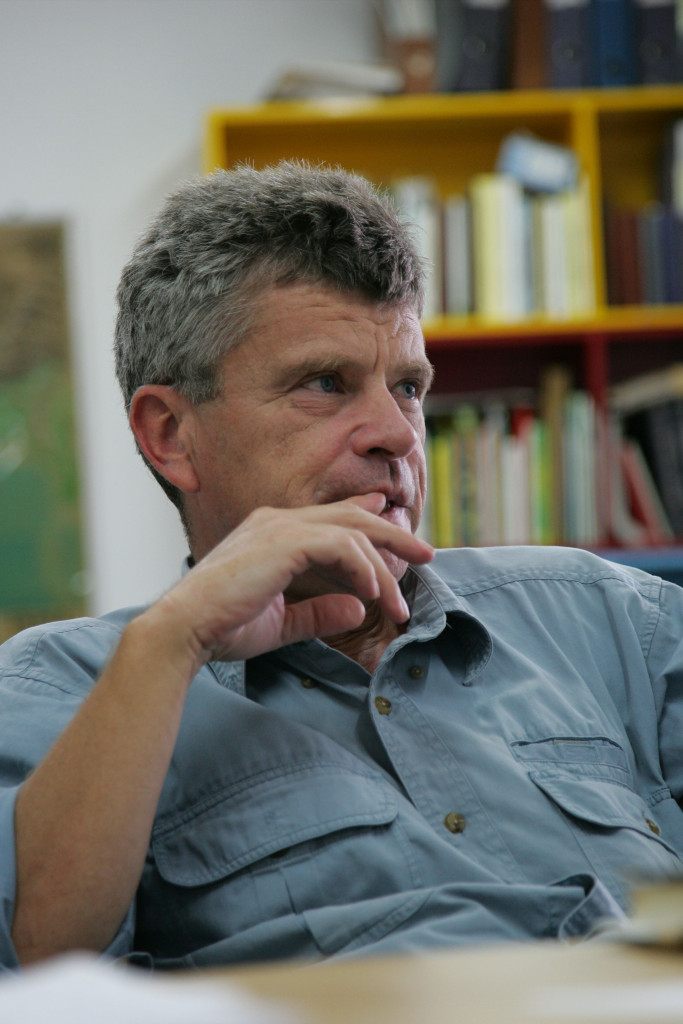
Remembering Michael Blümmel

This article by David Aronson was originally published on the website of the International Livestock Research Institute (ILRI). It is republished here in a shortened form.
It is with great sadness that we report the death of Michael Blümmel, a principal scientist and deputy program leader in the feed and forage development program at the International Livestock Research Institute (ILRI). Michael passed away on Monday, 12 Oct 2020, after a short illness in his hometown in Germany where he was receiving treatment.
His many friends and colleagues at ILRI and the broader scientific community registered shock and dismay at his untimely passing, with many remembering his thoughtfulness and kindness as a colleague and mentor, as well as his scientific skills in animal nutrition and feed production.
‘We will miss Michael not only for his scientific contributions but for the calm and caring human being he was’, said ILRI director general Jimmy Smith.
‘This loss will reverberate throughout the world of animal nutrition within CGIAR and many, many national partners as well’, said Shirley Tarawali, assistant director general at ILRI. She added, ‘Michael understood very well how sound science related to real issues facing farmers and others on the ground.’
Susan MacMillan, team leader in communications and advocacy at ILRI, remembered Blümmel for his ability to synthesize even arcane scientific facts into the bigger picture: ‘In Michael Blümmel’s technical proficiency, his mastery of his chosen discipline and his passion for science, he exemplified for me the “scientist’s scientist”, she said.
Blümmel had a passion for bringing science and development together, building partnerships with the private and public sector to mitigate feed and fodder shortages and generate employment and income opportunities for the rural disadvantaged.
Blümmel was an animal nutritionist with a Dr. Sc. (1994) and a Habilitation (2004) degree from the University of Hohenheim in Germany. He had more than 30 years of experience in teaching, development, research and research management in Europe, US, Africa and Asia–many of those years with ILRI, with whom he had worked since 2001. He had more than 250 scientific publications, about half of them peer reviewed.
Blümmel had a passion for bringing science and development together, building partnerships with the private and public sector to mitigate feed and fodder shortages and generate employment and income opportunities for the rural disadvantaged. In one of his recent projects, he worked with small-scale women dairy producers in India to explore the benefits of growing forage plants as a cash crop.
In another, even more ambitious project, he sought to leverage spin-offs from second-generation biofuel technologies to upgrade animal feeding. Biofuel scientists have recently developed novel ways of splitting off the glucose in the plant cell walls to convert it into ethanol. By treating cereal straws and stovers—the ‘residues’ of cereal crops after their grain has been harvested—with these processes, he showed how these crop residues could be turned into nourishing feed for ruminant farm animals. That project demonstrated the reach of Blümmel’s ambition: Not only would the project help farmers meet their animals’ fodder needs and create new income opportunities for the rural poor, but by collecting for use rather than burning the residues, it would help reduce the air pollution that often afflicts many Indian cities.
Blümmel’s focus on topics like crop residues, which are not perhaps the most glamorous of issues, spoke to his immensely practical frame of mind. As he often noted, ‘Feed resourcing and feeding is at the very interface where the positive and negative effects of livestock, income, livelihoods and the environment are negotiated.’
‘Michael virtually single-handedly put the growing importance of crop varieties bred for animal as well as human consumption “on the map” in the global livestock-research-for-development agenda’, said MacMillan. ‘In this work, quite unusually for a “livestock scientist”, he worked intimately and brilliantly with crop scientists throughout the world and throughout his career.’
Memories and tributes to Blümmel continue to arrive as news of his untimely death spreads throughout the ILRI community and beyond. If you would like to pay your respects, please leave a comment in the comment box below this article as posted on the ILRI News blog site (https://news.ilri.org/).
